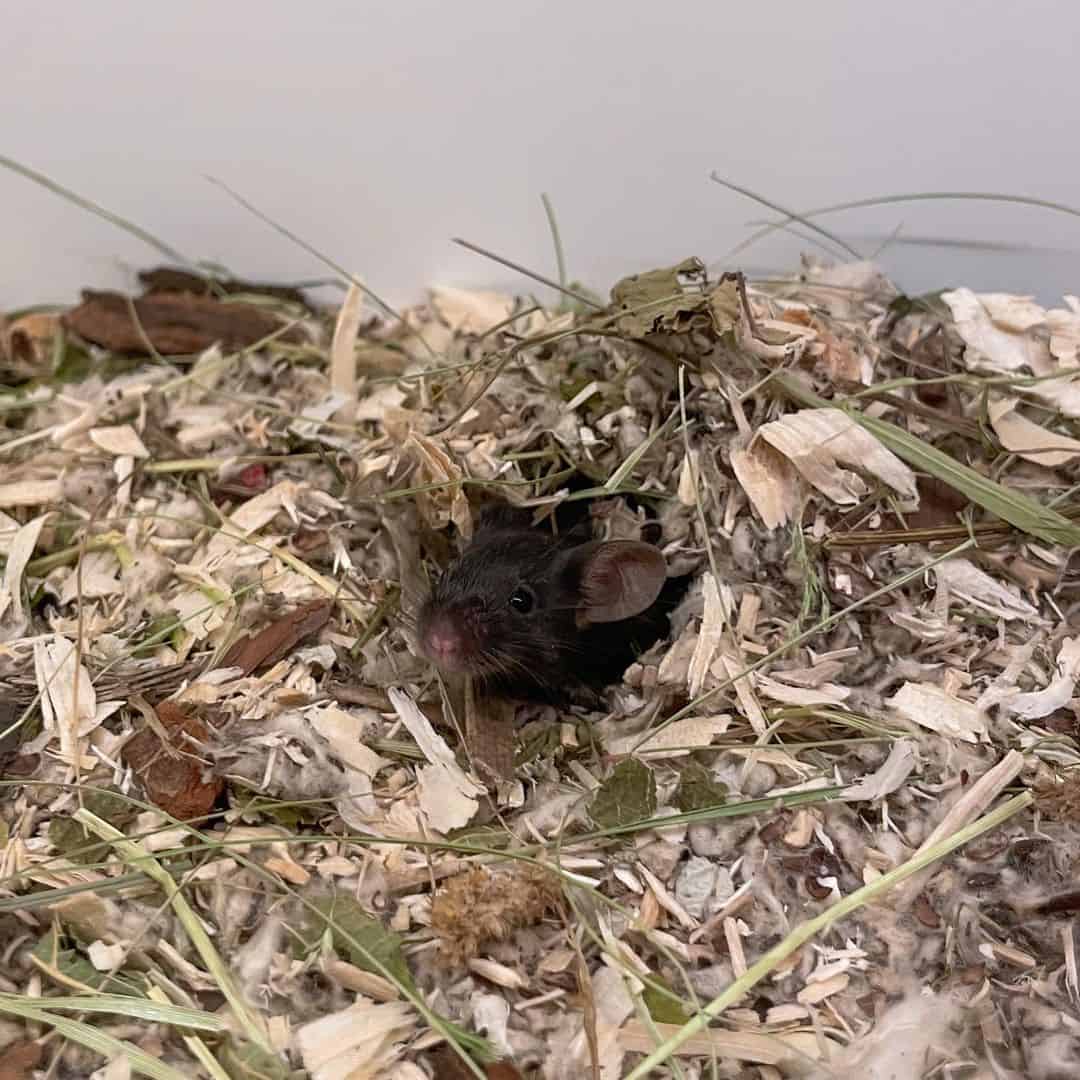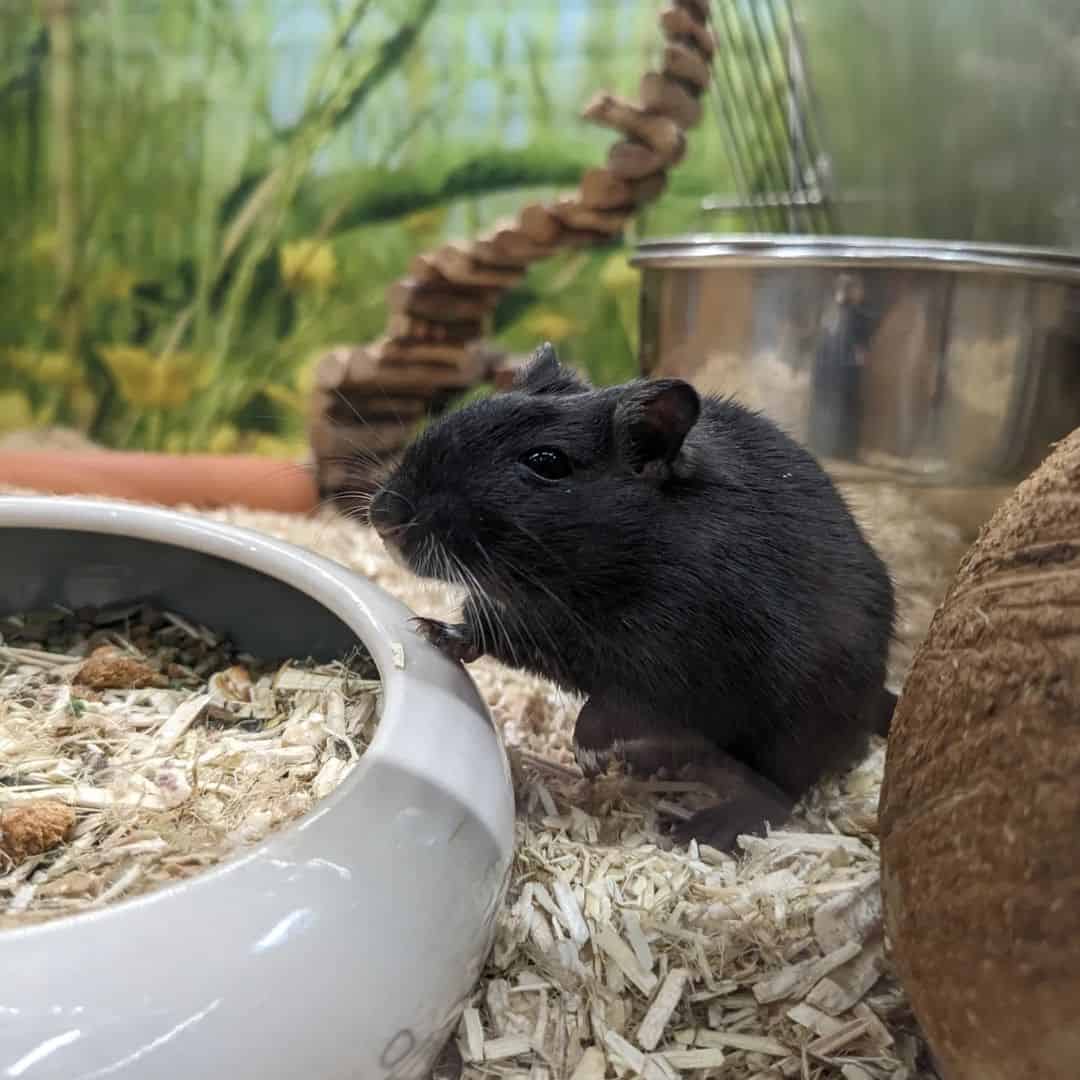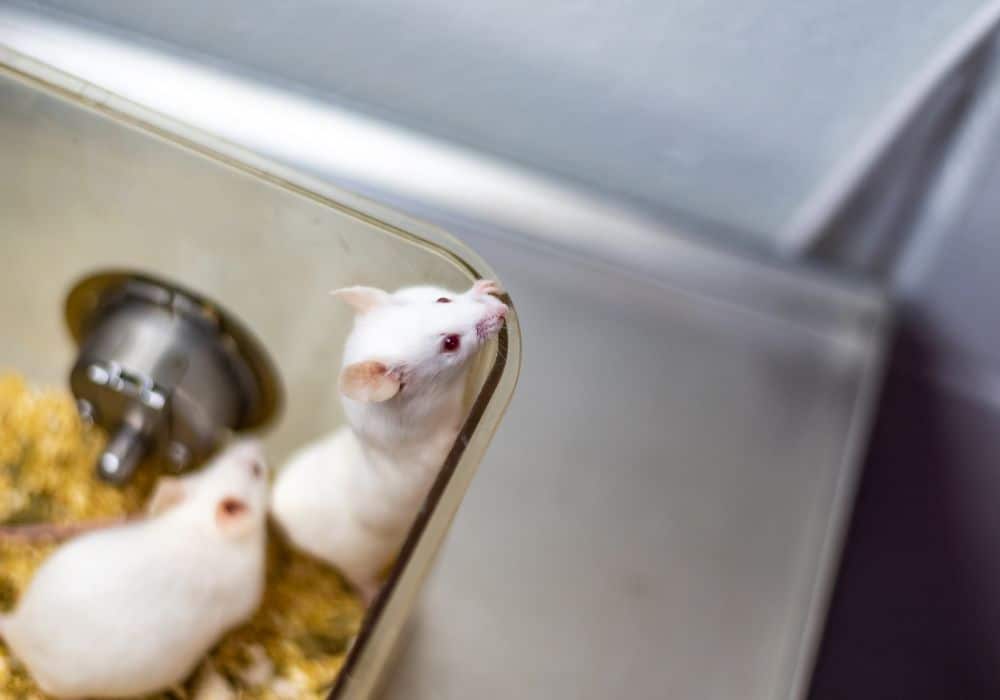The presence of mice in a house, leave alone the bed, can be disgusting.
Once they invade your bedroom, these pesky pests can make your life a living hell. First, they leave behind disgusting dark and moist droppings. Second, mice can urinate on your bed, filling your bedroom with a strong unbearable odor.
And the worse part? If you come into contact with their saliva or urine, you might get infected with a dangerous disease like Hantavirus Pulmonary Syndrome or Leptospirosis.
Let’s not forget, these invaders also can wreak havoc on your favorite beddings and even clothing.
If you fancy a good night’s sleep free from scratching and squeaking noises made by rats, it’s time to eliminate these unwelcomed visitors.
Below we’ve provided you with practical ways to get rid of and deter mice and rats from your sleeping space. Number 8 is my favorite!
Keeping Mice Away Naturally
Here are six proven ways to keep mice away from your bed:
1. Organizing Your Room to Remove Clutter
Like many pests, mice, and rats thrive in poorly lit spaces or areas with clutter. So, if you have an area in your room with stacks of papers and clothes, chances are, a mouse is lurking around.
Clutter provides these small rodents with warm and comfortable space to nest and grow their population.
So, remove any lying fabrics, cotton, or shoes on your floor to keep these creatures away. You also want to organize your items into clean shelves, boxes, or bags to eliminate potential hiding spots.
2. Cleaning Your Room Frequently
If you fancy taking snacks in bed, you must clean your room frequently to keep rats away.
Rats and mice constantly seek shelter, food, and water. So, if they find food crumbs or leftovers scattered on your bed or around the bedroom, they might decide to stick around.
Therefore, make it a habit to keep your room tidy regularly. Get rid of food crumbs or spills from your favorite drink (coffee or soda) and empty the garbage near your bed.
You must also change your bedsheets, bed covers, and duvets as often as possible. Otherwise, these invaders can use them as nesting sites.
3. Mouse-Proof Your Bed
Leaving your bed cover touching the floor paves the way for mice into your bed.
When making your bed, it’s crucial to ensure everything is intact. Tuck in overhanging edges of your sheet and comforter (or blanket) under the mattress to prevent mice from climbing into your bed.
Did you know human urine can attract rats?
Sometimes, wild rats find the potent smell of human urine attractive. But most domesticated rats and mice find the urine’s scent repulsive and might become aggressive when exposed to it.
Nevertheless, if you wet your bed, you increase the risk of attracting these creatures to your bedroom.
So, what’s the solution?
Well, use a rubber sheet (slicker) to prevent soaking your mattress. Also, replace the wet bedding daily to create a clean and healthy environment.
4. Use Scents Rats Dislike

Image Credit: thecolormice
Rats and mice have a keen sense of smell. That’s why they can locate food crumbs or leftovers even in the most hidden corners of your house.
But this trait is also their weakness. How?
Since these rodents are highly sensitive to smells, you can use specific scents they dislike to keep them away. These smells include:
- Clover
- Garlic
- Onion
- Camphor
- Hot peppers containing capsaicin
- House ammonia
- Used coffee grounds
- Peppermint
- Eucalyptus
- Predator scent
- Lemongrass
- White vinegar
- Citronella oil
Use these substances to create a potent solution that you can spray along the bed frame and hidden corners of your bedroom. This way, you can repel rats lurking around and prevent them from coming back.
Alternatively, you can soak cotton balls in peppermint oils or white vinegar and place them in areas in your bedroom often frequented by these creatures.
Additionally, consider coating your bedroom walls with camphor because its fragrance can drive mice away. And if ingested by the rats, camphor induces unfavorable effects, like diarrhea and nausea.
5. Block all Rodent Access Points
Rodents can access your bedroom through various openings – some of which might be too tiny to see without a keen eye. In fact, rodents can squeeze themselves through holes and crevices as small as half an inch in diameter.
So, take some time off to identify potential entry points that can give rats access to your home and eventually, your bedroom. Next, seal the gaps, cracks, and holes using steel wool, foam, or caulk.
For larger openings, especially those above or below your windows and doors, use fine wire mesh to seal them.
6. Seal Water Leaks and Cover Pet Meals
Like any other living thing, mice need food and water to survive. Because of this, these rodents will nest near areas in your house prone to water accumulation.
If you have leaky pipes or damaged drains, expect to attract mice and other pesky pets. To prevent such a situation, fix leaky pipes and faucets and remove water bowls from the floor.
You must also always cover pet food and water and store them in rodent-proof containers to avoid having rats around.
To ensure these small animals stay out of your bed, avoid feeding your pets in your bedroom. Prepare pet meals in another room and cover them once your friend finishes eating. If the food goes bad in the bowl, throw it away, or else you might attract unwanted visitors.
Additional Ways to Get Rid and Deter Mice

Image Credit: goroandjerbil
If the methods above fail to yield the result you desire, worry not! We have highlighted more effective rat elimination and deterring techniques below:
7. Set up Pests Snap Traps
Snap traps are arguably the most popular and effective method of luring and capturing mice. You can set up such a mouse trap through the following steps:
- Hold the wooden base of the snap trap firmly or stabilize it against the floor
- Pull the spring carefully, loading now up, then down to the opposite side of the snap trap
- Hold the bow down on the opposite side of the snap trap
- Carefully place the locking bar of the metal loop provided
- Ensure the bait pan side of the snap trap faces the wall
If a mouse wanders into the trap and triggers it, it will snap shut, and quickly, and humanely kill the rodent.
For the best result, set the traps against your bedroom walls. Mice and rats are wary of open spaces and prefer crawling along the wall and hiding in dark spaces.
Therefore, ensure the trigger mechanism is accessible to the mice. Don’t forget to add appropriate bait like peanut butter, cotton balls, and chocolate to lure in the rats.
But remember, bait like peanut butter can become rancid. So, it’s wise to replace it periodically to keep it attractive.
Check the traps regularly to see if you have captured the small rodents. If the trap has caught a rat, remove and dispose of it immediately. Next, reset the trap and set it up to capture other rats.
Safety tip: Ensure the snap trap is out of reach for pets and children!
8. Allow Your Pets into Your Bedroom
If you don’t allow your pets into your bedroom, you may be doing yourself a disservice.
Having a cat in your room scares off mice and increases your chance of catching them. This holds, considering cats are natural hunters who enjoy chasing and feeding on rodents.
These furry creatures have a powerful sense of smell and sight, which allows them to detect rodents anywhere in the house. On top of that, a cat’s scent is enough to send rats into hiding.
Some people even take things a notch higher by placing a bell on their pet’s neck, which produces noise that can scare rodents away.
However, domesticated cats rarely chase rats for food. While they might kill one or two mice, these rodents reproduce quickly. This makes it hard to control their numbers.
9. Call an Exterminator
As said above, mice reproduce quickly. A female rat can give birth to up to 12 pups and can be in heat within 48 hours of giving birth. Now, you see, why they can become a nuisance quickly.
If you are dealing with a mice infestation, the techniques above might prove infective. In such a case, seek the services of a professional exterminator.
These experts will first inspect your property for signs of mice activity and determine the extent of the infestation. They will identify the rat species causing you headaches and tailor their treatment approach to eliminate the infestation.
Most pest exterminators use baits and traps during the elimination. But some might suggest fumigation for the mice removal. But this method is costly and labor intensive, and it might also leave multiple dead rodents throughout your home.
After exterminations, these professionals might offer you several recommendations to avoid dealing with future mice infestation.
Bottom Line
Mice are not the best pests to have in your house, especially around your sleeping space. These rodents can be a source of headaches because they can chew through your furniture, clothing, electrical wires, and other items.
If that’s not enough, they can give restless nights with their constant scurrying, gnawing, and scratching. Mouse dropping, urine, and saliva can trigger allergies and transmit diseases like Leptospirosis and Salmonellosis.
Fortunately, these tips will help you keep your bedroom mice-free and allow you to enjoy a peaceful slumber.
Best of luck!
